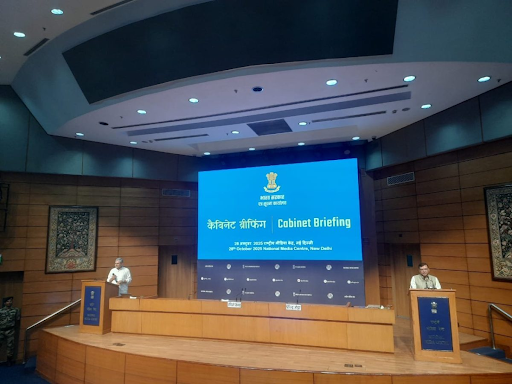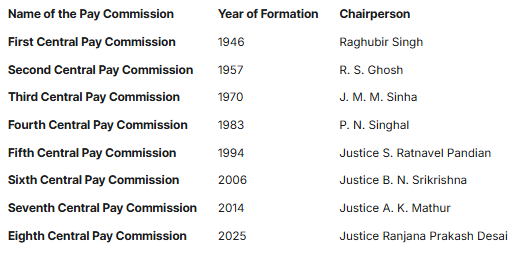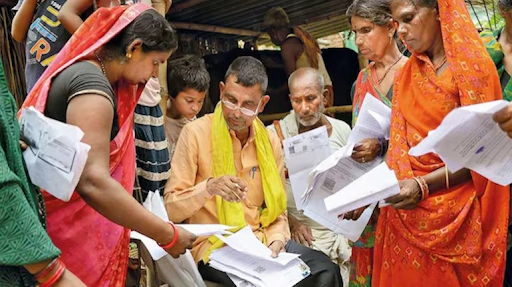



The Union Cabinet has approved the Terms of Reference for the 8th Central Pay Commission, chaired by Justice Ranjana Prakash Desai, to revise pay, allowances, and pensions for 12 million employees and pensioners. The panel will report in 18 months, with recommendations effective from January 1, 2026.

Copyright infringement not intended
Picture Courtesy: NEWSONAIR
The Union Cabinet approved the Terms of Reference (ToR) for the 8th Central Pay Commission (CPC).
The Union Government establishes an administrative body every ten years to recommend changes to employee salaries, allowances, and retirement benefits.
It is an advisory body, its recommendations are not binding on the government.
It operates under the Department of Expenditure, Ministry of Finance, and includes experts from relevant fields.
Objectives
The first Pay Commission (PC) was established in 1946. The 7th was established in 2014, and 8th was approved in January 2025.

8th PC
The panel will report in 18 months, with recommendations effective from January 1, 2026.
It will affect over 4.9 million serving employees and nearly 6.5 million pensioners.
Justice (retired) Ranjana Prakash Desai has been appointed Chairperson of the 8th Central Pay Commission, and is expected to submit its recommendations within 18 months.
Recommendations must be financially sustainable, aligning with current economic conditions and fiscal prudence.
Assess how its recommendations affect State Government finances, considering that states adopt central recommendations with their own adjustments.
Government salaries, structures, benefits, and working conditions in Central Public Sector Undertakings (CPSUs) and the private sector will be benchmarked to maintain competitiveness.
Pay structure will be based on a "Decent and dignified Living Wage," referencing the 15th Indian Labour Conference (1957) recommendations and Supreme Court judgments on minimum wages.
The 8th Central Pay Commission must balance employee welfare, efficiency, and fiscal prudence to align government remuneration with current economic realities and national aspirations.
Source: NEWSONAIR
|
PRACTICE QUESTION Q. Discuss the potential economic implications of constituting the 8th Central Pay Commission. 150 words |
The Central Pay Commission is a body that the Government of India constitutes approximately every 10 years to review and recommend changes to the salary structure, retirement benefits, and other service conditions for its employees.
The Pay Commission revises salaries using a "fitment factor," which is a multiplier applied to the existing basic pay to determine the new basic salary. Other components of the salary, such as Dearness Allowance (DA) and House Rent Allowance (HRA), are then calculated based on this revised basic pay.
The commission considers the national economic situation, funding for development and welfare, financial impact on states, and compensation and employment in central public sector undertakings and the private sector when making recommendations.



© 2026 iasgyan. All right reserved